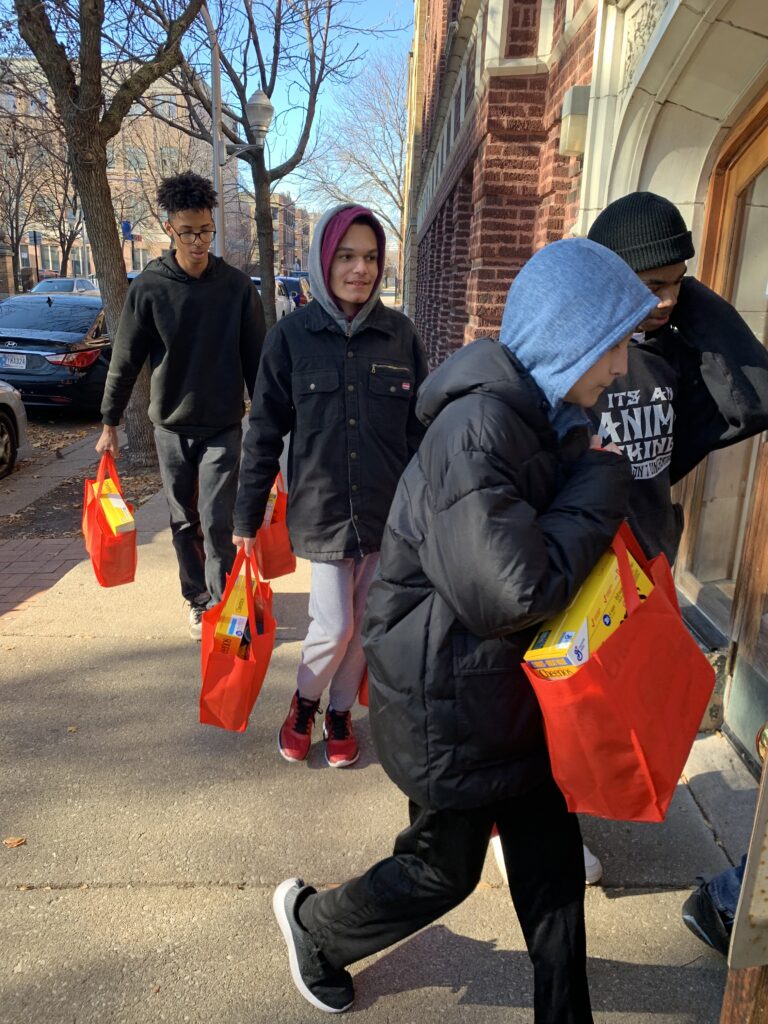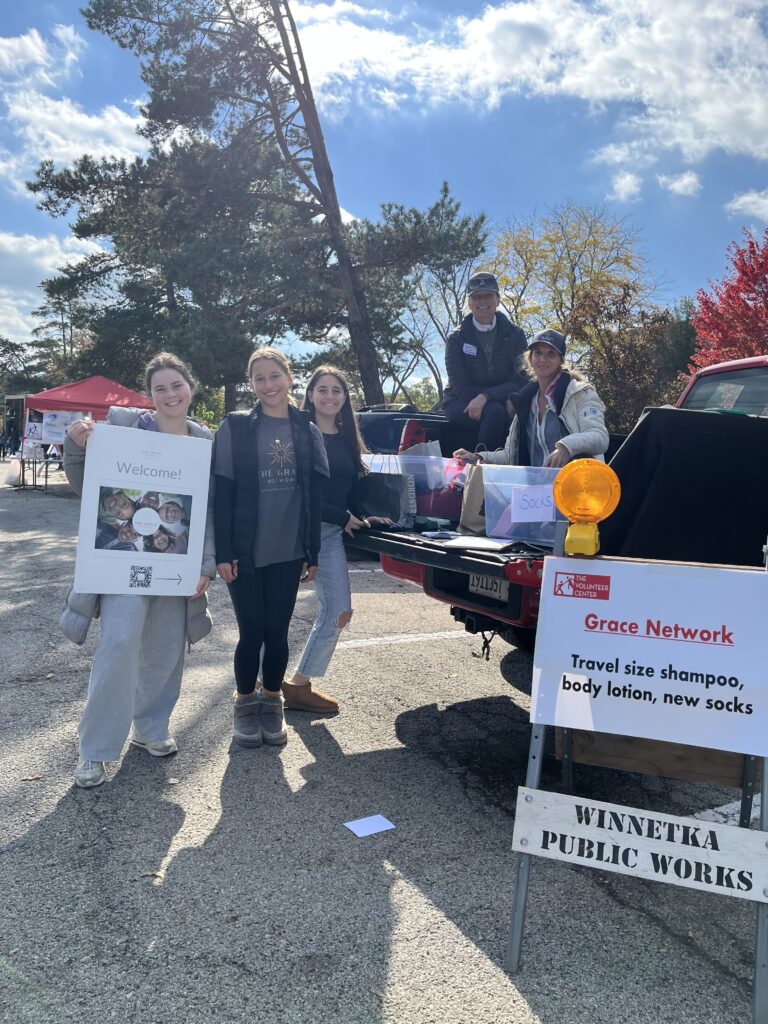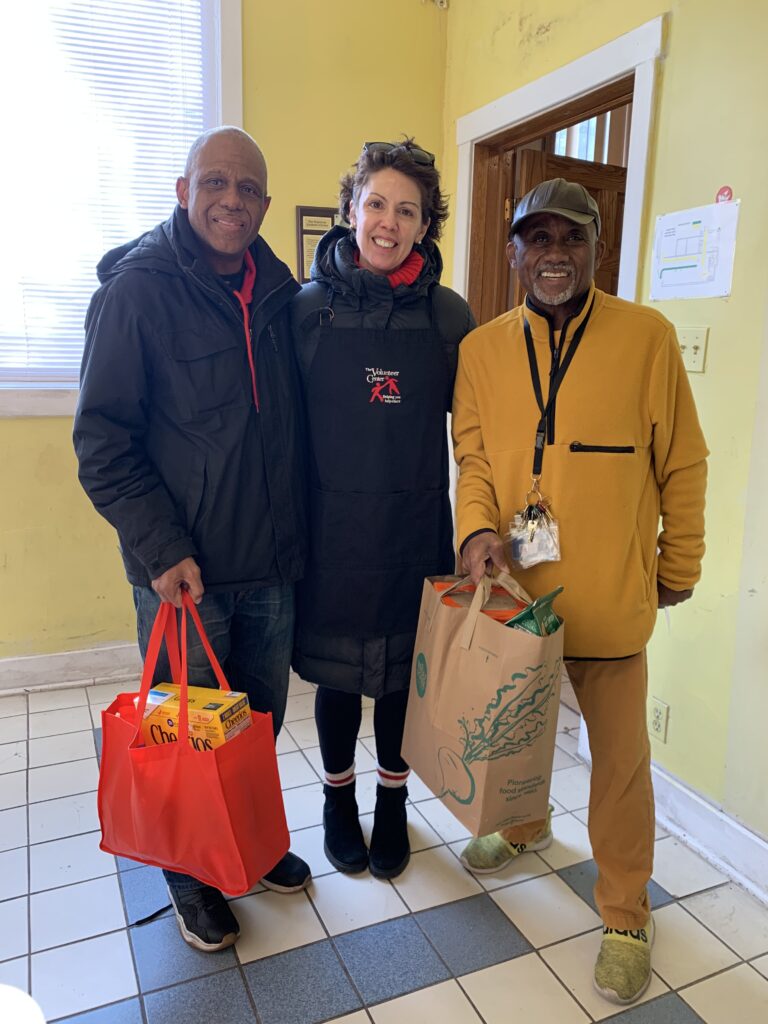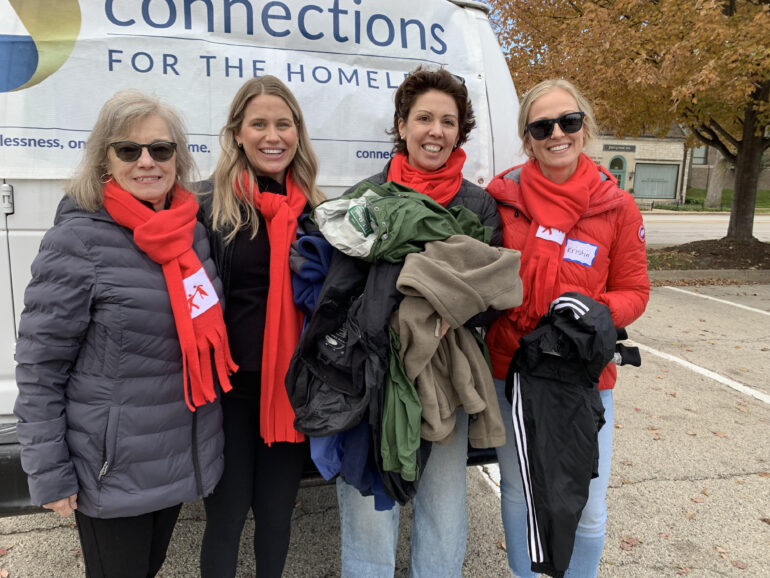Research has shown that social connectedness can improve physical health and emotional well-being, and even increased life span. The Volunteer Center provides a path to making such connections and fostering positive emotion through volunteering. Here’s how.
Volunteering enhances well being
It is a scientifically accepted premise that contributing time and effort to a cause greater than oneself enhances well-being. The Mayo Clinic reports that, “By spending time in service to others, volunteers report feeling a sense of meaning and appreciation.” Jamie Ducharme reported in a May 2023 Time Magazine article, that in a study of 50,000 kids ages 6-17 parents who reported their child participated in “some kind of volunteer work” were 66% more likely to consider their children as “flourishing.”

Volunteering builds a support system around common interest
When volunteers care passionately about a cause, they’re more likely to stay engaged with the community of other volunteers who share their interests. One of the things the Volunteer Center always says when helping a member of the community find the right volunteer opportunity for them is, “Tell us what you’re interested in, and we’ll find an organization that has matching volunteer opportunities.” Do you like horses? There are equestrian nonprofits looking for volunteers. Do you enjoy basketball? There are organizations looking for volunteer coaches, referees and more.
Volunteering provides an opportunity to learn new skills
Interested in learning carpentry, try volunteering with Habitat for Humanity. Want to learn about gardening? See if your town has a community garden. Interested in improving leadership, communication or problem-solving skills? Join an organization where most decisions, big and small, are made by the volunteer board.

Volunteering provides a unique satisfaction and meaningful connection to one’s community
Open to all ages and abilities, volunteering is a great way to foster and encourage multi-generational interactions. Laura Carstensen — a Stanford University psychology professor and Director of the Stanford Center for Longevity — said, “Contrary to widespread beliefs that older populations consume resources that would otherwise go to youth, there is growing reason to think that older people may be just the resource children need.” Tobi Johnson, a master trainer of volunteer engagement, said, “When multiple generations are represented in a volunteer program, they learn what they have in common and form bonds.”

Whether you’re looking to enhance your well-being, socialize or learn a new skill, spending some time volunteering is worth your consideration. There are nonprofits looking for volunteers in a wide range of interests, ages and abilities. Need help discovering your best volunteer opportunity? Learn more from the Volunteer Center.
How To Help:
The Volunteer Center depends mostly on contributions from individuals and family foundations. Your generosity will enable them to sustain programming, which includes thousands of valuable volunteer referrals to their very diverse nonprofit partners featured on The Volunteer Center website; the community-wide Days of Service; as well as best practice management trainings for their nonprofits that provide meaningful outcomes for both the volunteer and the organizations. Donate today.

More from Better:
- GO Campaign Started with a Goal to Help 20 Kids. 2 Decades Later, They’ve Helped 200,000 — How to Support Their Exponential Growth
- Chronicling the Canary in the Coal Mine: Wilmette Native Danny O’Malley Brings Award-Winning Film Home
- Alzheimer’s Association Celebrates Caregivers, Spotlights Impact of Balancing Work With Care of a Loved One

